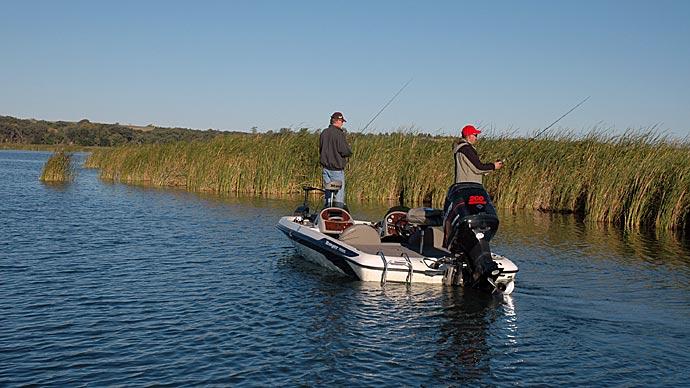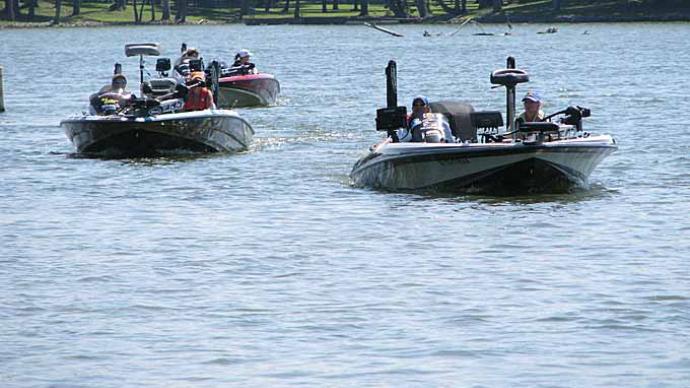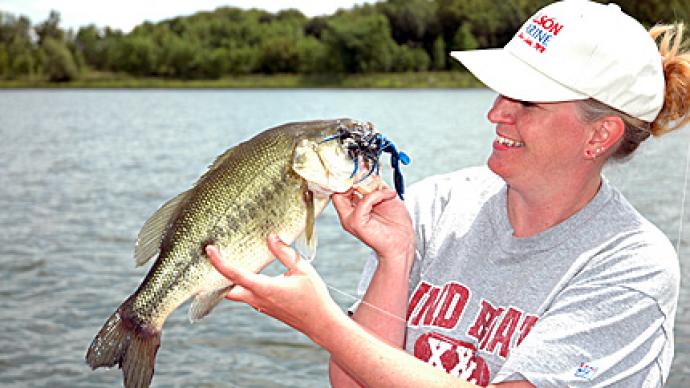
Tournament season is over for most of us now. Anglers who qualified have competed in final championships, and we're all looking forward to the next season.
Now is the time to look over what you accomplished in events during the previous season. Did you reach the goals you had set for yourself?
You have to be realistic when setting goals. If it is the first year you've entered tournaments, the goal of becoming the Angler of the Year might be unrealistic. It takes time and continued effort to reach the top. It doesn't happen overnight.
Of course, even rookies can shine during their first year on the circuit, but that doesn't happen often. The first year I attempted to fish competitively in team events was 1986. My regular partner was Roy Carlson, and we fished the old US Bass circuit. It was the first time we had competed together.
A lot of groundwork goes into being a team. Compatibility is the key to success. If you and your partner don't get along, it's just about impossible to compete well. Your fishing techniques should be similar so that one of you isn't fishing fast, covering a lot of water, while the other wishes to fish slow, staying in one location all day.
The first year Roy and I fished together, we cashed a check at every event, and we finished as Anglers of the Year. It took both of us putting a great deal of effort into the goal of doing the best we could to have the success we did. It takes both partners doing some pre-fishing and practicing. Roy and I would pre-fish at least four days out of separate boats. That way, we covered twice as much water and doubled our chances of catching bass.
Our goal for the next season was to win at least one event. Realistically we knew that our previous season's success would be challenging to duplicate. All the parts of the whole have to come together just right to make that happen, and as we all know, the real world doesn't always work that way.
One of the key elements for becoming Angler of the Year begins with weighing in a limit of fish at every event. While large bass are often unpredictable, five keeper-sized bass can be the key. Ending up at the high end of the final standings most definitely requires weighing a limit or equivalent weight of these bass.
Our goal was met with a win at Possum Kingdom the following season. That year we finished second place overall. In 1988, we won an event at Whitney and again finished second overall in the region. Our goal had once again been to win one event.
We tried not to set our goals too high, but we chose to gamble on big fish for at least one event each season rather than just a limit of keepers. Don't get me wrong, we would have enjoyed taking the title. But it had not been our original goal.
During our first few years of fishing together, we did what I call power fish. We tried to cover a lot of water. We fished shallow and fast. There were days when our trolling motor batteries would die long before 2:00 p.m.
Our tactics have changed, and we fish mainly deep-water structure. We fish less than ten different locations during an event. We've begun putting more effort into winning championship events in the last few years. Our new goal was to put every effort into the end-of-the-season event. We spend at least two months pre-fishing the lakes where these are held. We've even gone to the extent of building and sinking brush piles of our own. Sometimes this type of work can pay off, and sometimes it won't.
The point is you must set goals before each season begins. Remember to be realistic with your goals and work hard to give yourself the best chance of reaching them. It could mean taking a check or even becoming Angler of the Year.
Bill Wilcox is sponsored by Ranger Boats, Yamaha Outboards, MCMC, BG Products, Pro Rule, Johnson Fiberglass, Brown's Automotive, Continental Batteries, Kistler Rods, Swamp Hog Lures, Strike King Lures, Fun-n-Sun Sports Center.




